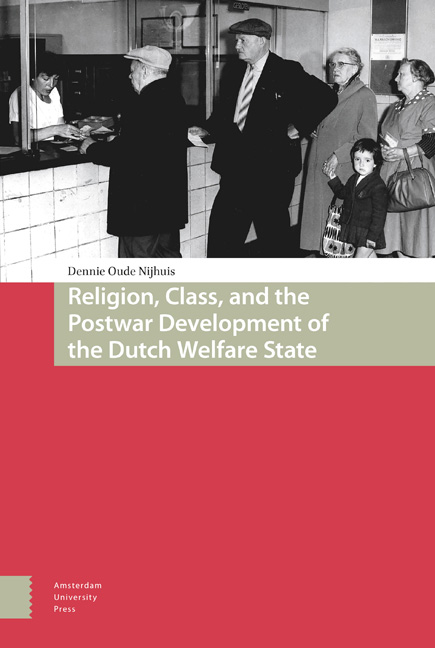7 - The Emergence of Welfare Without Work
Published online by Cambridge University Press: 11 December 2020
Summary
By the mid-1970s, the Dutch welfare state had undoubtedly become one of the most generous in the world. With the possible exception of some of the Scandinavian countries, it offered more cradle-to-the-grave protection to its citizens – and on more lenient terms – compared to any of its foreign counterparts. Whereas major labor market risks such as disability, old-age, sickness, and unemployment continued to be major sources of poverty and income reduction in many Western countries, this was no longer the case in the Netherlands. Of most importance to this was the generosity of the social insurance system, whose high coverage rates, lenient eligibility criteria, high benefit rates and preferential treatment of lower-paid contributors increasingly began to draw attention among policy-makers in other countries. At the same time, other forms of state help and provision had also come to compare favorably to their foreign equivalents in terms of their ability to provide care and assistance to those in need. Given the poor state of these programs in the immediate postwar period, this can be viewed as a remarkable achievement. Within a period of only two to three decades, Dutch policy-makers had managed to radically transform the functioning of the national welfare system, thereby succeeding in lifting large groups of citizens out of poverty as well as greatly increasing their citizens’ ability to deal with major socioeconomic uncertainties in life.
To do so, it had of course been necessary to commit an ever-larger amount of financial resources to the social insurance system. In the ten years between the introduction of the General Assistance Act and that of the net-net link, total spending on income transfer programs in the Netherlands increased from roughly fourteen to twenty-four percent of gross national product. By the mid-1970s, Dutch spending on social benefits exceeded that of any other country in the world. At the same time, as we have seen in the last two chapters, the various governments responsible for the postwar expansion of the welfare state had paid very little attention to the possible consequences of high benefit generosity on labor supply. While these consequences had remained limited during the 1960s and early 1970s, when economic circumstances were quite favorable, this rapidly changed following the outbreak of the first oil crisis in 1973.
- Type
- Chapter
- Information
- Publisher: Amsterdam University PressPrint publication year: 2018



